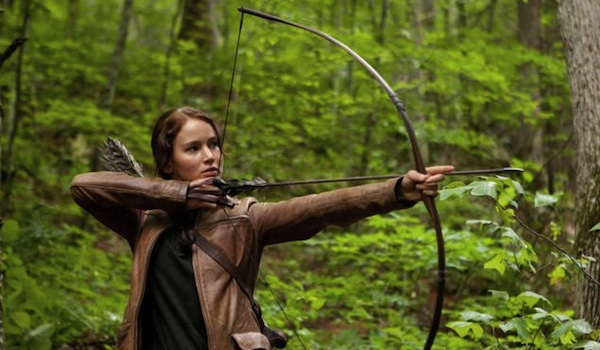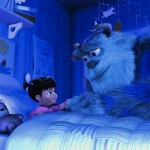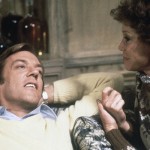The Hunger Games Review
While reading Suzanne Collins’ novel, The Hunger Games, you’re immediately struck by the story’s cinematic potential. A dystopian future, an elaborate death match, and an angsty young-adult love triangle—what’s not to like? But with the good comes the potentially terrible—opulent cities with multi-colored buildings, the inevitable neutering down of the novel’s bloodier moments, and an angsty young-adult love triangle.
In the hands of a filmmaker with a ton of clout and experience, those worries should be easily quelled. Gary Ross, with all due respect, doesn’t really have either of these things. Yes, Pleasantville is, well, pleasant. And Seabiscuit is solid, but those are his only two directorial efforts, many years have passed since their releases, and neither is an action-packed mega-blockbuster like The Hunger Games.
What’s most surprising, then, about Ross’ latest (among many pleasant surprises) is his deft hand at directing. The film is both exciting and emotionally satisfying. It’s extremely well-adapted from the novels, and does a terrific job establishing the entire series and its characters. It also has a style that, while unexpected, serves the material quite well.
In case you’ve been living in a cave for the past few months and don’t know the story, here goes. The world as we know it is gone. The free states of North America have been replaced by a place known as Panem, which consists of an all-powerful Capitol and twelve outlying districts. Decades prior to the film, the districts rebelled and were summarily crushed by the Capitol. As a punishment, the Hunger Games were created.
Every year, a young man and woman (between the ages of 12 and 18) are chosen from each district at random to compete in a televised death match. Twenty-four go in, only one comes out. In District 12, Katniss Everdeen (Jennifer Lawrence) volunteers to enter the Games after her younger and much less capable sister is the district’s random selection. Her male counterpart: Peeta Mellark (Josh Hutcherson).
The two are whisked away to the Capitol in the hands of their mentor, Haymitch (Woody Harrelson), an alcoholic who happens to be District 12’s only previous winner. Once there, they become this Games’ sensations. Katniss dazzles the adoring crowds with her flaming evening gowns styled by the trusty Cinna (Lenny Kravitz), while Peeta tugs on their heartstrings with his proclamation of love for Katniss, and they both manage to impress their competitors and the Games Makers with their skills. But almost certain death still looms, and once in the arena, it’s clear that it’s every man and woman for his or herself.
Your level of appreciation for The Hunger Games will ultimately boil down to what you think and want the film to be about. Those looking for a Battle Royale-esque bloodbath will leave disgusted. The film goes out of its way to avoid showing the most potentially gruesome moments. Look at it, like I did, as a commentary on both class and our voyeuristic tendencies, and you’ll find a lot to admire. The Games itself was child’s play compared to the world and character building that occurs in the film’s first half. That’s The Hunger Games‘ sweet spot. The almost-silent few moments before the Games begin are a testament to that. The tension is palpable, even a little overwhelming. Nothing that happens afterward can touch it.
Stylistically, Ross surprises and succeeds. On a superficial level, rapid cuts and in-your-face shots are always a little frustrating. Of course, it’s always nice to be able to follow everything that happens with ease (and without feeling queasy). The result, however, is a sense of being there, with Katniss and Peeta as they lament their certain deaths, or later, when they run and fight for their lives. Our connection to them is stronger, I feel, than it might be had the film been composed of sweeping overhead shots and, to switch gears slightly, a more conventional score. The style of The Hunger Games serves the material and the overall moviegoing experience quite well, and whether or not it was simply a move to obscure some of the worst instances of violence, I accepted and appreciated it.
It’s hard to believe I’ve gotten this far into a review of The Hunger Games without mentioning what’s perhaps its greatest strength—the outstanding lead performance by Jennifer Lawrence. Of course, we all know she’s capable of greatness, but with all the talk of this series being “the new Twilight,” the last thing I expected was a performance like this. Winter’s Bone was her breakout, of course, and at least at first, the two films have a lot in common. District 12 looks a hell of a lot like backwoods of Debra Granik’s film, and Katniss’ determination and need to provide for others isn’t far off from the plight of Ree Dolly. In The Hunger Games, Lawrence is extremely vulnerable even though it’s clear she’s spent her whole life building up this sheen of toughness. She says on more than one occasion that she doesn’t know how to make people like her, yet she appears to be a natural. In the arena, she conveys both sides to the character perfectly. Though she’s more than capable of holding her own and putting on a good show, we get multiple glimpses of her as a terrified young woman who doesn’t know what she’s doing.
Would if I could heap the same praise on her co-star, Josh Hutcherson. I thought he was actually quite good in The Kids Are All Right a few years ago, but he seems incapable of making Peeta jump off the cage. The passion so evident in the written character is wholly absent from Hutcherson’s interpretation of him. Liam Hemsworth plays the third wheel in the “love triangle,” and he’s just that—a third wheel. He has a couple scenes early on but is largely absent for the rest of the film. The only other real noteworthy supporting performance from where I sit is that of Stanley Tucci as the Hunger Games host, Caesar Flickerman. He’s our window into the world of the Capitol, and It’s apparent he’s having a lot of fun hamming it up.
The massive success of The Hunger Games (and I’m speaking in terms of quality and critical reception, not box office dollars, though it’s clear that’s a factor, as well) means there will be a lot of eyes on the making of its sequel, Catching Fire, which is set for a November 2013 release. With Lawrence locked in, I’m not worrying about a thing. This series has earned carte blanche, as far as I’m concerned, because those in charge managed to pull of something I thought wouldn’t happen with this film—they made something personal, relatable, and unique out of a story that’s a full six degrees separated from reality. Fans and non-fans should be pleased with the final outcome, and if you’re one of the three or four people in the world that hasn’t yet seen the film, go ahead and fork over your ten bucks. It’s the best money you could have spent at the theaters so far in this young year.
















